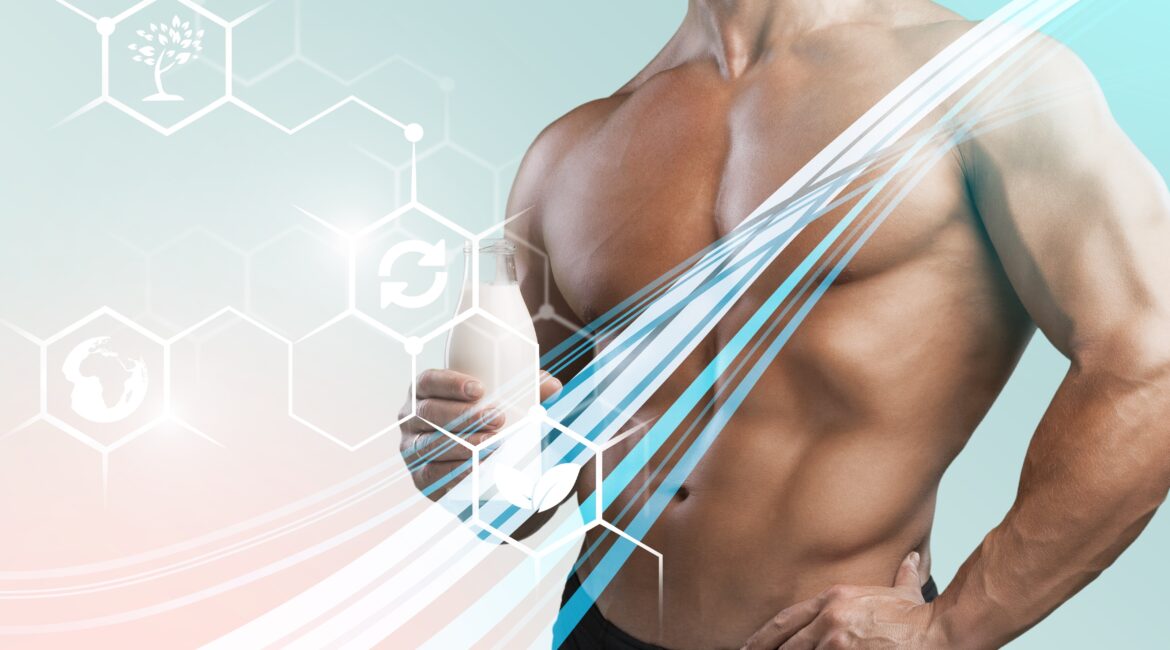There’s a lot of talk about testosterone therapy and how it can help improve your well-being. But did you know that one of the potential side effects of testosterone therapy is an increase in hunger? Why does this happen?
When you take TRT one of the most common effects is an increase in your metabolic rate. To put simply, your metabolic rate is the energy your body uses to function. This increase in metabolism can lead to an increase in hunger as your body needs more energy to sustain its increased metabolic rate.
It’s somewhat confusing when this happens, and learning how to balance your diet on TRT can be tricky. However, this means that your TRT program is working and your body is responding well to the therapy.
In the rest of this article, we will go over some tips for managing your hunger while on TRT and other important information to know about the effects of testosterone therapy on hunger.
Why Does Your Metabolic Rate Go Up On TRT?
The increase in your metabolic rate on TRT is a result of the therapy causing a change in your body composition. In other words, testosterone helps to build muscle and lose fat.
The more muscle you have, the more energy you burn even when you’re not actively working out. This increase in muscle mass leads to an overall increase in your metabolic rate, causing an increased feeling of hunger.
Will TRT make you gain weight?
It all depends on the person. Someone who is way overweight due to low testosterone will likely see weight loss as their testosterone levels normalize. Water weight in the beginning stages may lead to a temporary weight gain, but should level out and lead to weight loss as the TRT program progresses.
If you’re someone on the leaner side when starting out on TRT, you actually might gain weight with an increase in muscle mass and a decrease in body fat. However, it’s important to note that this weight gain is typically seen as healthy and not an increase in overall body mass.
It also can be common for someone who’s in the middle of the pack to keep the same weight, but see their belly drastically shrink while gaining muscle mass in other parts of their body.
How Long Does It Take For These Effects To Kick In?
When it comes to the effectiveness of TRT, it varies from person to person. Generally, it can take anywhere from a few weeks to a few months to really see the effects and for your body to adjust.
So if you’re reading this, don’t rush to conclusions on what’s happening right away. Let the TRT program run its course and give your body time to adjust.
However, if you’re already feeling effects in the first few weeks, that’s a good sign and your body is responding well to the therapy.
How Can You Manage Your Hunger While On TRT?
First and foremost, it’s important to note that TRT is meant to work hand in hand with a healthy diet and exercise. While an increase in hunger may occur, it’s important to not let this lead to overeating or choosing less healthy options.
Good Diet For Someone On TRT
It’s important to have a balanced diet, focusing on lean proteins, fruits and vegetables, healthy fats, and whole grains. This will provide your body with the nutrients it needs while on TRT.
Some meal examples include:
- Grilled chicken breast with quinoa and roasted veggies
- Salmon with brown rice and steamed broccoli
- Greek yogurt with berries and nuts
Eating nutrient dense foods will also help keep you fuller for longer, minimizing the impact of increased hunger.
In addition to eating a balanced diet, it’s also important to stay hydrated while on TRT. Staying hydrated can help manage appetite and cravings.
Putting Your New Energy To Good Use
One potential upside to the increase in hunger and metabolism while on TRT is that you may have more energy. Use this new found energy to make healthy choices and incorporate exercise into your routine.
This can include going for a walk or jog, joining a gym, taking a fitness class, or even just doing some at-home workouts. Whatever form of exercise you choose, make sure to consult with your doctor before starting any new fitness routine.
Have a Stress Reducing Routine
When it comes to TRT, a lot of talk is about diet, and exercise, but it’s also important to manage stress levels. Stress can lead to an increase in appetite and cravings for less healthy options.
Here are some ways you could reduce your stress on a daily basis:
- Meditation or deep breathing exercises
- Yoga
- Journaling
- Spending time outdoors
- Talking to a therapist
Getting Good Sleep
Often staying up late leads to late night snacking. Late night snacking is one of the biggest contributors to over eating and weight gain.
Many people prioritize tv shows, sports events, work, and a lot of other things in order to miss out on sleep.
While being on TRT, it’s important to prioritize getting enough sleep. This not only helps with managing hunger, but also allows your body time to recover and repair itself. Aim for 7-9 hours of uninterrupted sleep each night.
Below are some tips in order get sleep earlier and maximize your TRT treatment:
- Turn off all screens (TV, phone, computer) at least an hour before bed Create a calming nighttime routine to signal to your body that it’s time for sleep
- Keep a cool and comfortable sleeping environment
- Avoid caffeine or alcohol before bedtime
What Are Some Foods You Should Avoid On Testosterone Therapy?
While TRT can be effective in improving overall health, it’s important to still maintain a healthy diet. This means avoiding processed foods high in saturated fats and sugars. These include packaged snacks, fast food, sugary drinks, and fried foods.
Other foods to avoid while on TRT are soy products and alcohol. Soy has been found to mimic estrogen in the body and alcohol can interfere with the body’s natural testosterone production.
Some exact food to stay away from include:
- Fried foods (such as french fries and fried chicken)
- Sugary drinks (soda, energy drinks, sugary coffee drinks)
- Processed meats (hot dogs, deli meat)
- Soy products (tofu, edamame)
In Summary
To summarize this article, we learned that TRT could increase appetite and metabolism. It’s important to maintain a balanced diet, incorporating lean proteins, fruits and vegetables, healthy fats, and whole grains.
In addition to diet, also focus on staying hydrated, exercising regularly, reducing stress levels, and getting enough sleep.
If you do these things you will maximize the benefits of TRT and maintain a healthy weight.
Prolong Labs Will Help You With Your Anti-Aging Journey
Prolong labs is here to help you find the best anti-aging clinic for you. So if you’re interested in possibly starting TRT, contact us to find a clinic in your area.




